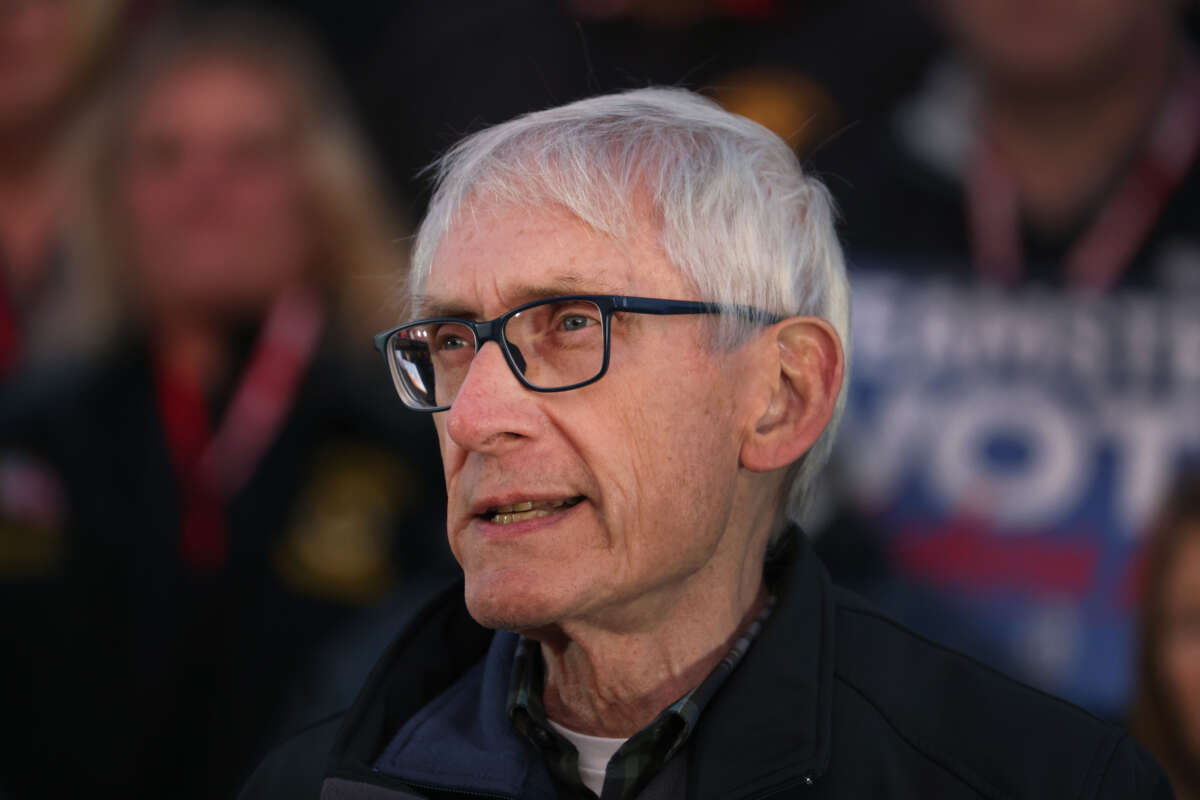Democratic lawmakers in Wisconsin pushed for a nonbinding referendum question on abortion to be included on the spring ballot this April, hoping that doing so would show anti-abortion Republicans, who control the state legislature, that residents of the state support the recognition and protection of abortion rights.
Following the U.S. Supreme Court ruling this past summer that dismantled nationwide abortion rights protections granted under the 1973 Roe v. Wade ruling, Wisconsin, like many other states, reverted back to an abortion law that was previously “on the books” but never removed or otherwise dealt with. For the Badger State, that meant going all the way back to a law that was passed in 1849, which forbids abortion at any stage of pregnancy past the legally ambiguous standard of “quickening,” and which makes no exceptions for rape or incest. An abortion can only occur within the state’s borders if a person’s life is dependent on it, according to the statute’s wording.
Wisconsin does not have the ballot initiative, a method of passing laws and amendments to state constitutions that other states allow residents to utilize. Leaders within the Republican-controlled state legislature have thus far made no moves to update the 1849 statute.
Instead, Republicans appear poised to push for more restrictions on allowing Wisconsinites to access public benefits. This month, GOP lawmakers proposed a nonbinding referendum that would ask voters whether there should be tighter work requirements in order to access those benefits.
Such referendums do not require the legislature to act on them, one way or another, depending on their outcome. Rather, they ostensibly serve to provide lawmakers with a better understanding of how voters feel about a particular issue. However, depending on the wording, a nonbinding referendum can be used for political reasons, too, potentially drawing one party’s base to the polls in an otherwise low-turnout election — like the yearly spring races, which this year features a contentious and important state Supreme Court election.
Democrats, responding to the proposal from Republicans, opined that it was being used as a political instrument and offered up a different proposal. Rather than voting on work requirements for public benefits — which Democrats say Republicans in the state have pushed for anyway over the past decade — they proposed eliminating that idea in favor of putting forward a nonbinding referendum on abortion instead, which would ask voters in the upcoming spring election whether the 1849 abortion law should be repealed, and whether “the constitutional rights guaranteed under Roe v. Wade [should] be restored.”
“Abortion care is health care and the people of Wisconsin will make that resoundingly clear given the opportunity to voice their preference in a statewide advisory referendum,” Senate Democratic Leader Melissa Agard said in a statement.
The referendum question from Republicans “attacks low-income Wisconsinites and is borne out of turnout considerations for their base in the upcoming spring election,” Agard added, noting that Republicans in Wisconsin have already imposed a number of work requirement restrictions in the recent past and in those instances, didn’t care about putting forward an advisory question prior to introducing legislation.
A question on abortion rights is more pertinent to Wisconsinites, Assistant Democratic Leader Sen. Jeff Smith said, given the outcome of the midterm elections — including a statewide gubernatorial race, which saw Gov. Tony Evers, a Democrat, win a second term in office by campaigning in large part on restoring abortion rights.
“Republicans lost [the gubernatorial election] last fall because they failed to take action on abortion,” Smith said in a statement. “They would rather play politics with superfluous referenda questions while women are left questioning why it has taken this long to have their healthcare rights restored. An advisory referendum to repeal the 1849 abortion ban is a bipartisan approach that will bring Wisconsin into the 21st century.”
Evers himself endorsed the idea of an advisory question on abortion in the upcoming spring election, set to be held in April.
“This is an opportunity to make clear that there continues to be not one single shred of doubt about where the people of Wisconsin are on this issue,” Evers said, noting that “Wisconsinites support Roe,” and “support reproductive freedom for our loved ones, our family members and kids, our friends, and our neighbors.”
Unfortunately for Democrats and for abortion rights activists in the state, Republicans rejected the nonbinding referendum proposal on abortion and pushed forward with their work requirements question, passing a resolution on Tuesday in the state Senate to include it on the spring ballot. It’s expected that the State Assembly will soon also pass the resolution, which was authored by Assembly Speaker Robin Vos (R) and Senate Majority Leader Devin LeMahieu (R).
Still, while the state ballot may not include the abortion question, a number of local governments in Wisconsin appear ready to allow residents in their jurisdictions to vote on it instead. On Tuesday night, the Eau Claire County Board of Supervisors voted to include a question on abortion on the spring ballot. Other counties, cities, towns and villages have the ability to include it on their ballots, too.
Press freedom is under attack
As Trump cracks down on political speech, independent media is increasingly necessary.
Truthout produces reporting you won’t see in the mainstream: journalism from the frontlines of global conflict, interviews with grassroots movement leaders, high-quality legal analysis and more.
Our work is possible thanks to reader support. Help Truthout catalyze change and social justice — make a tax-deductible monthly or one-time donation today.
